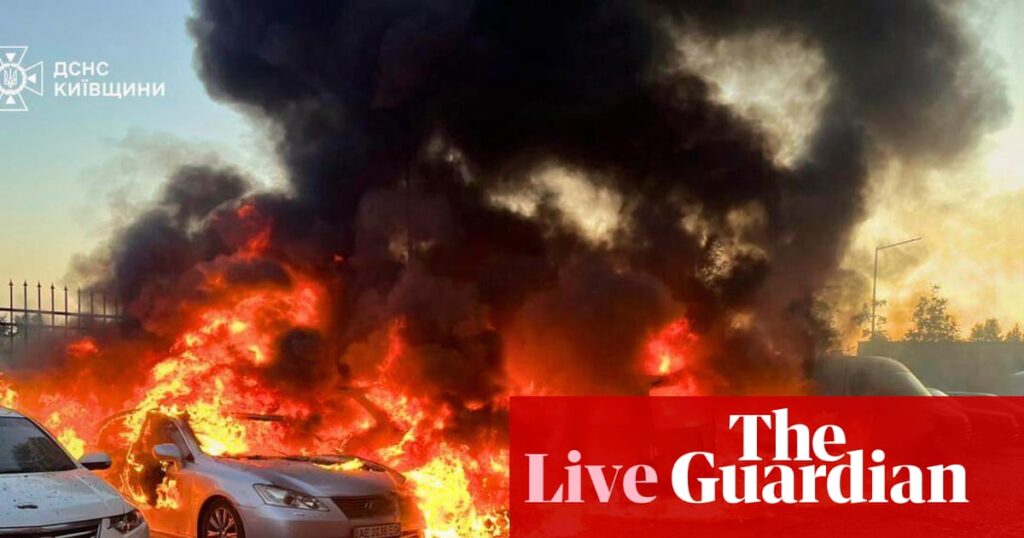
In a dramatic escalation of tensions, Polish and allied aircraft were deployed early Saturday to secure Polish airspace following a significant Russian airstrike targeting western Ukraine near the Polish border. The Polish armed forces, a NATO member, confirmed the operation aimed at ensuring regional safety amidst rising hostilities.
“Polish and allied aircraft are operating in our airspace, while ground-based air defense and radar reconnaissance systems have been brought to the highest state of readiness,” the operational command stated in a post on X. The alert came as nearly all of Ukraine was under air raid warnings due to Russian missile and drone attacks.
Massive Russian Assault on Ukraine
The assault, described as one of the largest in recent weeks, involved Russia firing 40 missiles and approximately 580 drones at Ukraine, resulting in three fatalities and numerous injuries. Ukrainian President Volodymyr Zelenskyy condemned the attacks, labeling them as a deliberate strategy to terrorize civilians and destroy infrastructure.
“Every such strike is not a military necessity but a deliberate strategy by Russia to terrorize civilians and destroy our infrastructure,” Zelenskyy expressed on social media, urging allies to provide more air defense systems and impose additional sanctions on Moscow.
“All night, Ukraine was under a massive attack by Russia. The enemy launched 40 missiles – cruise and ballistic – and about 580 drones of various types.”
Impact on European Aviation
Meanwhile, a cyber-attack on a service provider for check-in and boarding systems caused significant disruptions at major European airports, including London’s Heathrow, Brussels, and Berlin’s Brandenburg. The attack rendered automated systems inoperable, forcing airports to resort to manual check-in procedures, leading to flight delays and cancellations.
Brussels airport reported a “large impact” on flight schedules, with similar issues at Berlin and Heathrow. The affected service provider, Collins Aerospace, stated that they are actively working to resolve the issue and restore full functionality.
“This has a large impact on the flight schedule and will unfortunately cause delays and cancellations of flights,” Brussels airport stated.
Geopolitical Tensions and Military Maneuvers
The airstrike and subsequent Polish response underscore the heightened geopolitical tensions in the region. The attack follows recent reports of Russian MiG-31 fighters violating Estonian airspace, prompting swift responses from NATO allies. Estonia labeled the incursion as a dangerous provocation, while NATO praised the quick interception by Italian F-35 fighters.
In a related development, Ukrainian forces continue to press their counteroffensive around key eastern cities, inflicting heavy losses on Russian troops. The ongoing conflict underscores the persistent volatility in Eastern Europe, with both sides engaged in a protracted struggle for territorial control.
International Reactions and Future Implications
Internationally, the escalation has drawn widespread condemnation and calls for increased support for Ukraine. The European Union has proposed advancing a total ban on Russian natural gas imports to January 2027 as part of its latest sanctions package. EU Commission Chief Ursula von der Leyen emphasized the need to cut off fossil fuel revenues to the Kremlin.
The situation remains fluid, with potential for further escalation as both sides continue military operations. The international community watches closely, with the potential for diplomatic interventions or increased military support for Ukraine from Western allies.
As the conflict intensifies, the implications for regional stability and global political dynamics remain significant, with potential ripple effects across Europe and beyond.





